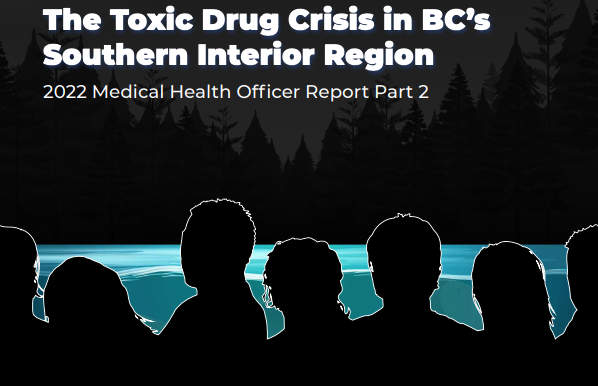Interior Health report informs ongoing efforts to save lives at risk from poisoned drugs
On International Overdose Awareness Day, Interior Health has released the 2022 Medical Health Officer (MHO) report, The Toxic Drug Crisis in BC’s Southern Interior Region (Part 2).
Authored by MHO Dr. Carol Fenton, the report updates on the impact of the unregulated substance poisoning emergency since the onset of the COVID-19 pandemic, explores the various reasons why people may use substances, and lays out a framework for all of the work needed to respond to this crisis.
Both part 1 and part 2 complement the BC Coroners Death Review, and include lessons from peer focus groups and from the review of medical charts of people who died from exposure to poisonous unregulated substances and who had accessed IH services in the year prior to their death.
“IH is committed to acting on recommendations from the medical chart review project, taking action to counteract stigma in health-care settings, designing programs and services with First Nations and Métis partners, increasing access to culturally safe mental health and substance services, and working with community partners on upstream prevention,” said Susan Brown, president and CEO of Interior Health.
“We are also committed to revising our strategy to generate a comprehensive suite of effective solutions to the unregulated substance poisoning emergency.”
The unregulated substance poisoning emergency has continued to worsen in B.C.’s Southern Interior, with 2022 being the deadliest year on record.
Two hundred and fifty-three people lost their lives in the first seven months of 2023, compared to 226 people during the same period in 2022.
“These aren’t just statistics and numbers: these are people we know and love. They are people in our families, people we work with, our neighbours and our friends,” writes Dr. Fenton in the report’s introduction.
The final part of the report uses the analogy of a river to describe the continuum of measures that promote health and wellness and prevent harm and suffering, and includes specific recommendations.
Alongside Interior Health, members of the public, community partners, and the BC Government will continue to play a vital role in reducing stigma and creating better conditions for health and wellness.
Medical health officer reports are a legislative mandate under the Public Health Act and align with IH’s strategic priorities.
Reports mark IH’s progress and focus on important population health issues that can be addressed through the health-care system and community partnerships.


























Comments